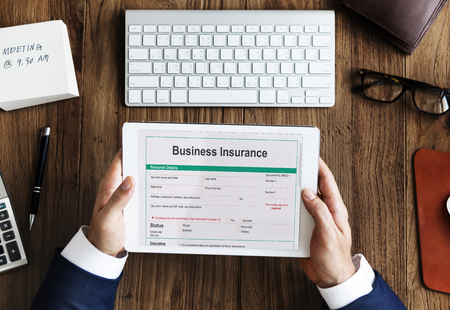Whether you’re a one-person operation or have multiple partners and generate millions in revenue annually, business owner disability insurance is crucial.
There are three types of business owner disability insurance that are considered the most important. This article will review these popular options and highlight the reasons why if you own your own business, you should also own one of these policies.
Anyone who owns a business and is considered self-employed should evaluate these policies: individual or personal long-term disability insurance, business overhead expense (often referred to as BOE), and if you have business partners, disability buy-out.
Personal Long-Term Disability Insurance
The most well-known form of disability insurance, long-term disability insurance comes in two forms: individual and group. It is purchased to protect one’s income from a loss due to sickness or injury. Most forms of business owner disability insurance are built to protect the business is some fashion – whereas these policies are bought to ensure that the household won’t suffer financially should a breadwinner be unable to physically (and in some cases mentally) work.
Group
Group coverage is usually offered through an employer or an association is often guaranteed issue (no underwriting requirements) and covers an employee’s salary to a certain limit.
Since this type of coverage is cost-effective, especially at younger ages, it needs to be in the conversation when discussing how to insure yourself against an accident or sickness that prevents you from working for an extended period.
The downside to group policies is that the price is not guaranteed (known as being “non-cancelable” in the disability world), they are capped at certain income levels and don’t always include bonuses and commissions. Their policy terms also aren’t always the most favorable to the insured.
For Example
The AMA (American Medical Association) policy that is offered to any full-time physician under the age of 60 has some great benefits. Many physicians need this type of business owner disability insurance and it can be purchased for a reasonable cost.
It is a specialty own-occupation policy which not only covers the ability to perform as a physician, but will allow claims if unable to perform “your own medical specialty”. That is a very friendly definition of disability – most notably to physicians with a specialty.
The policy offered through the AMA has several other attractive features, such as medical school loan repayments, the ability to increase coverage amounts, and a waiver of premium on a claim.
There are also downsides to a group policy like this.
For instance, coverage is capped at 15k per month. That is enough coverage for someone earning 300k annually – but many physicians can and do earn more, leaving a shortfall in coverage. Individual policies can cover much more than that (up to 100k in monthly benefits) if proven by income.
Also, the residual disability part of the policy will only pay following a total disability. Having an illness that prevents you from working full time but does not completely keep you from your duties (cancer etc.) will not allow you to go on claim.
Many individual business owner disability insurance policies would allow a claim in that example, due to a loss of earnings, time, or duties.
Group policies can be very attractive for a number of reasons. Like anything, there are also negatives to purchasing insurance offered to a large pool of individuals without exhaustive underwriting.
Individual
Mentioned in the example above are some of the advantages that an individual policy has over a group policy. In addition to higher limits, guaranteed premiums/renewability, and more advantageous terms of the base policy, individual long-term disability insurance allows you to purchase a policy that fits your goals and needs.
There are some downsides to an individual disability insurance policy.
For one, they are expensive. For comprehensive coverage, expect to pay anywhere from 1-4% of the income that you would like to protect.
Underwriting is the other challenge. There are very few qualifications to purchase a group policy, once you’re deemed eligible. An individual policy is going to have strict requirements, both medically and financially, to be offered for coverage.
The Verdict
There is no right answer here. What fits one person’s needs does not fit another’s. That being said, business owners who are looking to protect personal assets and cash flow from a loss of income due to sickness or injury should entertain all options.
Since most business owner disability insurance policies are not available via group, especially businesses with one to five owners/employees, starting with individual coverage subsequently makes a lot of sense. However, if a business owner does have access to a group policy, it must be considered when weighing premium costs versus policy benefits.
Business Overhead Expense
Keeping the lights on can be very expensive in some businesses.
Any business that has a lot of equipment, payroll, or insurance costs is a candidate for business overhead insurance or BOE.
Simply put, BOE is a type of business owner disability insurance policy that covers the costs of running the business, should the insured (typically the owner/principal) be unable to work.
These policies cover things like rent or a mortgage, utilities, payroll, and some types of insurance.
For Example
Look at a business owner like a dentist. He or she likely has an admin person to help with paperwork and scheduling, a hygienist, and maybe one or two other people in the office.
Our dentist also has a large payment due each month on their equipment, a lease payment for the space, the payroll for his/her employees, and malpractice insurance.
Should he or she be unable to work for an extended period of time due to sickness or injury, those expenses don’t go on hold or go away. Bills are still due, even though the practice is not seeing patients or earning revenue. Business overhead expense insurance helps to mitigate this risk.
Most of these policies will insure anywhere from 12-30 times the covered expenses, up to 50k per month. There are supplemental policies available that go as high as 100k per month.
The Verdict
So as a small business owner, should you buy business overhead expense insurance?
If you’re in a capital-intensive business that has a lot of fixed overhead, then absolutely. Business overhead policies are built to cover small businesses, normally with less than 10 employees, which rely on the owners’ personal service to generate revenue. Examples of these businesses would be accountants, dentists, and attorneys.
If you think that this type of business owner disability insurance could protect you, then feel free to contact us either by using the quote form or give us a call. We can help.
Disability Buy-Out
The third type of business owner disability insurance that must be considered by anyone who is self-employed is disability buy-out insurance.
Disability buy-out is very underappreciated and often not recommended nearly as much as it should be.
If you have multiple parties who own your business, be it through partnership or equity, then it is very likely that you have a buy/sell agreement.
A buy/sell agreement is a legal document that governs the circumstances of a co-owner dying or being unable to continue to work in the business. It is binding and dictates how the transfer of ownership must occur. While the agreement itself is important, having it properly funded is of equal significance.
This “till death do we part” type of arrangement often involves the purchase of life insurance either by the partners (cross purchase) or by the company (entity purchase) to facilitate the execution of the agreement should one of the key owners pass away.
What is often overlooked is the possibility that an owner becomes disabled and is unable to continue contributing to the business revenue. In most circumstances, this oversight is not made by the agreement itself, but in the funding.
For Example
Three attorneys, all equal partners, run a thriving tax practice valued at 9 million dollars. They have a buy/sell agreement; requiring the two surviving partners to purchase the shares of the third in the event of death or disability.
Like many of these agreements, it is partially funded with life insurance. Each partner has 3 million dollars of coverage on their life, allowing the two remaining partners to buy out the deceased partner’s estate’s interests in the business upon death.
But what would happen if one of the partners were unable to continue to work due to a mental or physical disability?
If they were to purchase disability buy-out insurance, a critical form of business owner disability insurance for anyone who has signed a buy/sell agreement, then after the elimination period a lump sum would be payable to the remaining partners or company. Those funds would then be used to buy-out the disabled partner’s business interest.
If such a policy was not in force, then the remaining partners would be required to fund the buyout from other means, either personally or by selling a portion of the practice. Obviously, this situation would create a rather uncomfortable dynamic. If you want to see an example (albeit a fictitious one) of the type of acrimony that an unfunded buyout can create – then watch the “Better Call Saul” season 3 finale.
This is certainly a situation in which no one would want to find themselves.
These policies can be structured with varying elimination periods, normally from 1-2 years. They can also take the form of a lump-sum or a payout over several years. Like most disability insurance needs, there is no “best policy”, just the policy that fits your goals and is attainable (either financially or medically).
The Verdict
Having a disability buy-out insurance policy will relieve all partners of the substantial financial obligation that can be brought on by a long-term disability.
If you’re subject to the terms of a buy/sell agreement, review it and see what conditions would require the triggering of the agreement. If this is a concern, and this liability is unfunded, then a disability buy-out plan warrants consideration.
Summary-Buying Business Owner Disability Insurance
If you are a business owner that needs disability insurance for self-employed individuals, then we are here to help.
Some business owners might be able to get away with just having a personal policy – covering their income if a sickness or injury prevents them from working.
Other businesses will need policies covering their expenses. Fixed business expenses can be covered through business overhead expense and business ownership liabilities can be reduced through a disability buyout policy.
No matter what your needs – we offer expert, unbiased advice to business owners in helping them to purchase the right disability policy for their needs.
Please contact us by completing the quote form on the left or by giving us a call at 888-636-2310. We’re here to help and appreciate your business.


